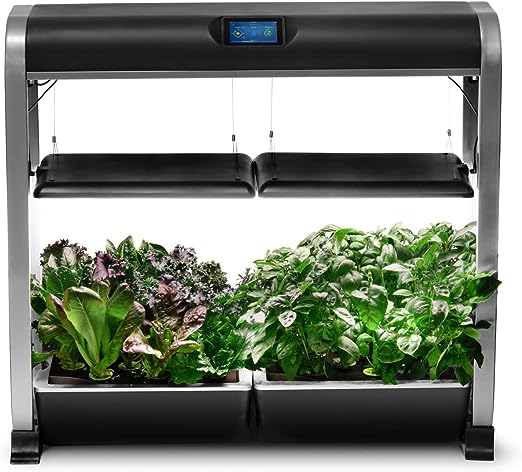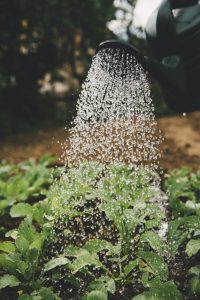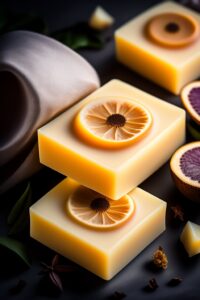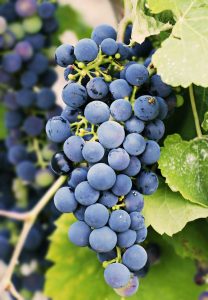The term ‘organic‘ seems to be popping up everywhere from our food to our clothing. It’s more than just a trend, it’s a way of life that has substantial benefits to us and our environment. But what does ‘organic’ really mean and why is it worth incorporating it into our lives? Let’s dive in. Organic basics are a lifestyle choice that touches every aspect of our lives, from what we eat, wear, to the skincare products we use. It’s about choosing options that promote sustainability and minimize harm to our environment.
Introduction: Diving Headfirst into the Organic Basics Pool
Picture this: you wake up to the early bird orchestra, a golden sunrise painting the sky. You savor a sip of your fair-trade coffee that tastes suspiciously like good karma, while your toast – a soldier of the organic grain army – bides its time on your breakfast plate. Casually, you reach for your favorite organic cotton tee, soft as a cloud and probably just as happy.
All these actions might seem as normal as forgetting an umbrella on a rainy day, but together they’re causing something quite extraordinary – a ripple effect towards a more sustainable world. This isn’t some fairytale, but organic living – a lifestyle that isn’t just about keeping you healthier than a gym rat on a kale diet, but also about caring for Mother Nature so she doesn’t hit us with any more “I told you so” hurricanes.
What Are Organic Basics?
Organic basics are not confined to one aspect of our lives. Instead, it covers several areas that have a profound impact on us and our planet.
Organic Food: Nature’s Gift
Eating organic food is one of the most effective ways to adopt the organic lifestyle. These are foods grown without the use of synthetic pesticides, bioengineered genes, petroleum-based fertilizers, and sewage sludge-based fertilizers. Why not try it out for yourself?
AeroGarden Farm 24Plus with Salad Bar Seed Pod Kit

Discover the magic of modern agriculture with the AeroGarden Farm 24Plus, a revolutionary hydroponic garden system that allows you to cultivate a stunning variety of 24 distinct herb, veggie, or flower types, all from the comfort of your own home. Enjoy a bounty of fresh produce every season, all year round, no matter the weather outside!
Armed with two high-performance, fully customizable 60W LED grow lights, the AeroGarden Farm 24Plus ensures your plants bathe in the full spectrum of light they require to flourish. Experience growth rates that are up to 5 times faster than traditional soil-based gardening, bringing a burst of greenery into your living space in no time.
Ease and convenience are the cornerstones of the AeroGarden Farm 24Plus. The intelligent automatic timer guarantees your plants receive light in perfect intervals, while the user-friendly digital screen provides timely reminders for adding water and plant food. With the added advantage of WiFi connectivity, you can effortlessly monitor and control your garden from anywhere in the world. Gardening has never been more straightforward!
A standout feature of the AeroGarden Farm 24Plus is the adjustable grow height of 24 inches, offering the flexibility to accommodate a range of plant sizes. The unique design even allows for stacking with other Farm gardens, creating a stunning vertical garden that not only maximizes your growth potential but also adds an eye-catching aesthetic to your interior decor. Amazon have very competitive prices you can check out here.
To kickstart your hydroponic journey, the AeroGarden Farm 24Plus comes bundled with two Salad Bar Seed Pod Kits. These kits include an array of 9 lettuce pods, 3 herb pods, and 12 tomato pods, providing a fresh and healthy salad right at your fingertips.
Turn your home into a verdant oasis with the AeroGarden Farm 24Plus, redefining the art of indoor gardening for a modern, health-conscious lifestyle.
Organic Clothing: Comfort Meets Sustainability
Just as the food we eat should be free of harmful chemicals, so should the clothes we wear. Organic clothing, primarily made of organic cotton, is farmed in a way that respects the earth and its natural cycles.
Organic Personal Care: Be Kind to Your Body
From the soap we use to the makeup we wear, choosing organic personal care products reduces our exposure to harmful chemicals that are often found in conventional products.
Why Organic Matters
Choosing organic does more than just contribute to a healthier lifestyle for you and your family, it also plays a crucial role in protecting our environment.
The Environmental Impact: Nature Says Thank You
Organic farming practices are designed to be more sustainable, minimize pollution, promote soil health, reduce soil erosion, and use less energy. It’s about working with nature, not against it.
The Health Factor: A Boost to Your Well-being
Organic products, from foods to personal care items, are free from harmful chemicals. This lack of harmful substances means a lower risk of diseases and allergic reactions.
The Quality Aspect: Taste and Feel the Difference
Many consumers swear by the superior quality of organic products. They often taste better and feel softer. Going organic isn’t just a healthier choice, it’s also a more enjoyable one.
First Steps to Organic Living
Embarking on the organic journey may seem like stepping into a vast, uncharted wilderness. But fret not, all great journeys start with a single step. Here’s how to get started on yours.
Swapping the Pantry Staples
Changing what’s on your plate is one of the most straightforward steps towards organic living. It’s all about swapping out your regular grocery list with its organic alternatives.
Understand the Labels
One of the first challenges in this organic expedition is deciphering the organic labels. Familiarize yourself with them so you can be confident that what you’re buying is genuinely organic.
Buy Seasonally
Embrace the rhythm of nature by buying seasonal fruits and vegetables. Not only does this guarantee the freshness of your produce, but it also supports the local farmers who’ve adopted organic farming practices.
Embracing Organic Personal Care
The organic lifestyle isn’t just about what goes in your body but also what goes on it. A great next step in your organic journey is to look at the personal care products you use daily.
Know Your Ingredients
Just as you’ve started reading the labels on your food, it’s time to do the same with your skincare and haircare products. Prioritize products that use natural, easy-to-understand ingredients.
Try DIY Skincare
Why not have a little fun on this organic journey? There are countless organic skincare recipes you can whip up with everyday kitchen ingredients. It’s not just organic, but also personalized to your specific needs!
Dress Organically
Having conquered the kitchen and the bathroom, now it’s time to turn your attention to the closet. And no, you don’t have to compromise on style to be sustainable!
Quality Over Quantity
In the world of fast fashion, it’s easy to accumulate a pile of clothes that you rarely wear. Instead, invest in fewer, high-quality organic clothes that are not just durable, but also gentler on your skin.
Maintaining an Organic Lifestyle
Now that you’ve taken the initial steps towards organic living, the next phase is about sustaining these practices. Here’s how to keep the momentum going and make organic living your new norm.
Become a Farmer’s Market Regular
One of the best ways to maintain your organic lifestyle is to incorporate regular visits to your local farmer’s market into your routine. It’s a great place to find fresh, locally sourced organic produce and even artisanal organic goods.
Develop Relationships with Local Farmers
Don’t just be a customer, become a part of the community. Building relationships with your local organic farmers gives you a deeper understanding of where your food comes from and supports local agriculture.
Preserve Seasonal Foods
What to do when your favorite organic berries are in season? Buy in bulk and preserve them! Freezing, canning, and drying are great ways to enjoy organic produce year-round.
Grow Your Own Organic Garden
If you have the space and the inclination, why not start your own organic garden? Whether it’s a few herb pots on your windowsill or a vegetable patch in your backyard, growing your own food can be deeply satisfying.
Start Composting
Composting is a natural process that turns your kitchen and garden waste into nutrient-rich food for your garden. Plus, it reduces the amount of waste going to the landfill. It’s a win-win!
Make Informed Clothing Choices
Maintaining an organic wardrobe is more than just buying organic clothes. It’s about making responsible and informed choices.
Choose Organic Fabrics
Look for clothing made from organic fabrics. Organic cotton, hemp, and bamboo are great choices as they are grown without harmful chemicals and are biodegradable.
Care for Your Clothes Properly
Extend the life of your organic clothing by taking good care of it. Follow washing instructions, mend minor tears, and store properly to keep them in good shape.
Support Sustainable Brands
There are numerous fashion brands that prioritize sustainable practices, from using organic materials to ensuring fair trade. By supporting them, you’re not just making a fashion statement, but also an environmental one.
Organic Clothing: A New Trend
The organic revolution isn’t limited to your plate; it extends to your wardrobe as well.
What’s the Big Deal About Organic Cotton?
Picture yourself on a shopping spree. You come across two shirts that look almost identical. One’s made from regular cotton, while the other is made from organic cotton. You might wonder, why pick the latter? Well, organic cotton is grown without harmful chemicals, reducing environmental pollution, and less likely to cause skin irritation. Choosing it is like getting a snazzy shirt and a bonus round of karmic points!
Benefits of Organic Clothing
Choosing organic clothing is like sending a thank-you note to Mother Nature. Organic farming practices reduce pollution and use less water, thus having a lower environmental impact. Plus, organic clothes are often more durable, saving you from frequent shopping sprees!
My apologies for the confusion earlier. Here’s the revised version with correct heading formatting and without italics.
Demystifying the Organic Shopping Experience
Diving into the world of organic shopping can feel like venturing into uncharted territory. But fear not, with some helpful pointers and a little determination, you’ll soon navigate the organic marketplace like a seasoned pro.
Making Sense of Organic Labels
With an array of products making ‘organic’, ‘natural’, or ‘eco-friendly’ claims, it’s crucial to cut through the marketing jargon and understand what truly constitutes an organic product.
Certified Organic Labels – The Golden Standard
The surest way to authenticate your organic purchases is to seek out certified organic labels. These certifications, awarded by recognized authorities, ensure that the product has met rigorous organic standards.
Understanding the Levels of Organic
Not all organic labels are created equal. Some products may advertise as ‘made with organic ingredients’, which means they contain at least 70% organic components. However, only those labelled as ‘100% organic’ are made entirely from organic ingredients.
Organic Shopping on a Budget
Transitioning to an organic lifestyle doesn’t necessitate emptying your wallet. There are savvy strategies to stretch your dollar while maintaining your organic commitment.
Prioritize Your Organic Buys
If a complete organic shift is financially daunting, prioritize. Begin with items that are conventionally grown with heavy pesticide use, such as dairy, fruits, and vegetables.
Bulk Buying – An Organic Shopper’s Best Friend
Bulk buying can significantly reduce the cost of your organic basics groceries. Staple items like grains, cereals, and spices are usually more affordable when bought in larger quantities.
Navigating the Online Organic Marketplace
The organic basics shopping journey is not confined to physical stores. Numerous online platforms specialize in delivering organic goodness right to your doorstep.
Choosing Reliable Online Retailers
It’s important to select trustworthy online retailers when shopping for organic products. Do your research, examine their transparency in sourcing, and read customer reviews before making a purchase.
Capitalizing on Online Deals
Online organic retailers frequently offer discounts and deals. Subscribing to their newsletters and keeping an eye out for sales can help you secure high-quality organic products at discounted prices.
Conclusion: Organic Living – More than Just a Hipster Trend
Well, there you have it, folks! You’ve just survived an intense journey through the kaleidoscope of organic basics, and if you’re not already wearing a cape made of recycled materials and calling yourself the Superhero of Sustainability, you’re at least a step closer.
From distinguishing the genuinely organic products that make regular vegetables green with envy, to unraveling the labyrinth of budget-friendly organic shopping, you’re now brimming with enough knowledge to start a YouTube channel.
But keep this in mind, evolving into an organic lifestyle aficionado isn’t an overnight thing; it’s more like a slow-cooker recipe. So, be patient, celebrate every tiny win. Each time you choose an organic apple over a conventionally grown one, it’s a small victory (and fewer pesticides in your system – yay!). Every organic clothing item you buy sends one less polyester top to a lonely existence in a landfill.
But hey, adopting organic living isn’t just about reaching that glorious end goal. It’s about the journey, the knowledge absorbed, the bad jokes endured, and the understanding that our choices are like boomerangs – they always come back, often in the form of climate change. So, go forth, embrace the organic basics, and let’s make Mother Earth a bit more ‘green’ and a bit less ‘global warming red.
FAQs
Why should I consider going organic? Think of going organic as upgrading your lifestyle for your health and the environment. It’s like choosing to take the scenic route instead of the freeway. Sure, it might take a bit longer and require more effort, but the benefits are worth it!
Does ‘natural’ mean ‘organic’? Not always. ‘Natural’ can be a misleading term and doesn’t undergo the strict regulation that ‘organic’ does. So while natural products can be a step in the right direction, they’re not quite the home run that organic products are.
Is organic food more nutritious? While the debate continues, some studies suggest that organic foods may have higher nutritional value because they are grown in healthier, chemical-free soils.
Are all organic products completely pesticide-free? Organic farming uses fewer pesticides and those that are used are derived from natural sources. However, “fewer pesticides” doesn’t always mean “no pesticides.”
Why is organic clothing more expensive? Organic clothing can cost more because organic cotton is more expensive to produce. However, they’re often more durable and better for your skin and the environment, making it a worthy investment.




